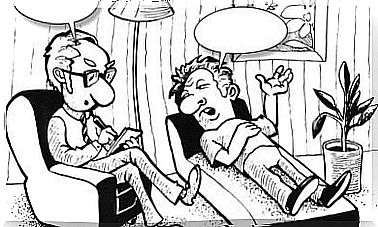The Possessiveness Of Love

Possessiveness is closely linked to jealousy, one of the great responsible for destroying relationships. But it is also a self-destructive feeling related to fear, mistrust and insecurity that possessive people feel. A feeling that acts slowly but steadily, little by little undermining the couple until they break up.
But it is essential to distinguish between love and possessiveness. While in love there is trust, desire to share, comfort and space for each member that makes up the couple; in possessiveness there is jealousy, selfishness and mistrust on the part of the possessive. Therefore, there is no freedom or tranquility for the other party; it is a relationship that leads to total destruction.
What triggers possessiveness
Possessive people have backgrounds that can range from loneliness to discrimination in childhood. They may have a low self-image; sometimes it may even be an inherited genetic trait.
In this way, the desire to control can be hidden under the desire for possession. A control that may be motivated by low self-esteem. By loving ourselves little, we seek that others make us happy, that is, we hold the other responsible for our happiness. Therefore, instead of loving freely, we cling to the other person and possessiveness is unleashed.

It must be said that, regardless of the cause or the antecedent, possessive people suffer attacks of jealousy and anger towards their partner. This supposes the existence of negative and painful episodes for both members of the couple. And it is incompatible, of course, with trust and love. When the possessive person considers that the partner does not make him happy, he can easily be invaded by anger.
How do possessive people show themselves?
Possessiveness not only tries to dominate the other party, it goes much further. Possessive people come to view their partners as suspects, when in fact they have done nothing. Everything appears as a chain reaction, where the possession and domination of the other is greater every day. A vicious cycle that poisons the relationship and hurts it to death.
The possessive person comes to spy on his partner, checks his luggage and looks for signs of infidelity in the marriage. In short, you do not stop being suspicious of your partner and you do not allow him to rest in peace. In extreme cases, you can even follow and spy on the other person at work to find out if they are having an affair.
Destroying a relationship

At first, possessiveness is mistakenly interpreted as a show of love, but when it becomes a persistent and negative trait, cracks are seen in that relationship. Any relationship, regardless of how deep and intense it is, must have space and freedom for both members of the couple. However, in a relationship where there is a possessive there is no place for it, triggering the breakup.
The possessive person wants to take care of everything, and causes interruption in the life scheme of both, so it is impossible that someone without freedom or tranquility can enjoy such an overwhelming relationship. It is a relationship that is doomed to failure. Space, respect, independence, are fundamental elements to maintain a healthy relationship. The feeling of possession will only lead to unhappiness and failure, no matter how long the relationship lasts.
How to control possessiveness
To control possessiveness, deep breathing and meditation can help you reach higher levels of mental focus, which will help you escape from that feeling of possession. Hypnosis also leads to self-control and to letting yourself be guided by reason, avoiding exercising possessiveness over loved ones.
Avoiding seeing the other person as an object, trying to express fears and being aware that this feeling of possession will drive the other away can help in the process. As professional advice will also help when the situation starts to get out of hand.
Knowing the difference between love and attachment will also be of great benefit to us in learning to truly love.
As the Buddhist nun Tenzin Palmo states: “ Attachment says, I love you, therefore I want you to make me happy. Genuine love says, I love you, therefore I want you to be happy. If that includes me, great, if it doesn’t include me, I just want you to be happy. Attachment holds tight and squeezes. Genuine love gently sustains in a nurturing way allowing things to flow .









